The number of measles cases in Hanoi continues to increase and shows no signs of slowing down. At Hanoi Children's Hospital, about 30% of children with measles are hospitalized in serious condition, requiring oxygen or mechanical ventilation.
The number of measles cases in Hanoi continues to increase and shows no signs of slowing down. At Hanoi Children's Hospital, about 30% of children with measles are hospitalized in serious condition, requiring oxygen or mechanical ventilation.
With a worried face, Ms. VTP (mother of 7-month-old VAK, residing in Hoang Mai, Hanoi) cupped her hands slightly, following the nurse's instructions to pat her child's back to help him feel more comfortable. Baby K. was hospitalized with a diagnosis of severe pneumonia complications due to measles.
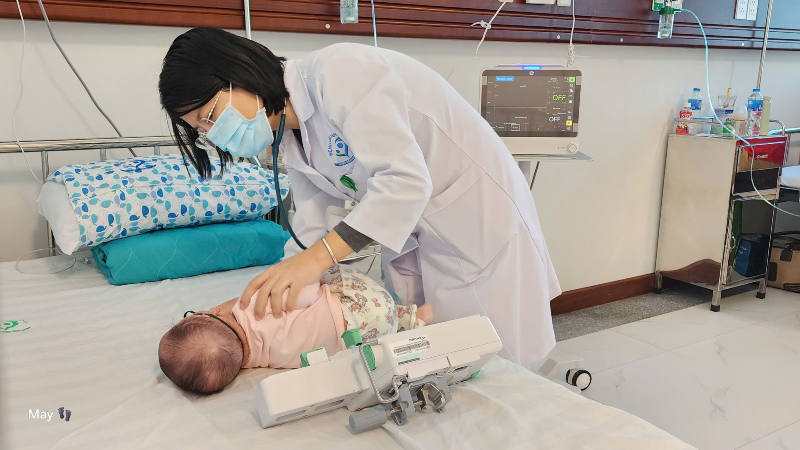 |
| The doctor is treating the patient. |
Ms. P. shared that a week ago, her child had been treated for pneumonia at Bach Mai Hospital. A few days after returning home, her child developed a high fever, cough, and difficulty breathing. When she took her child to the doctor, the doctor concluded that her child had a relapse of pneumonia due to complications from measles.
In the same room, VLHT, 3 months old (Thanh Tri, Hanoi), is also coughing continuously, making her mother extremely worried. Ms. LTH, T's mother, said that before that, her child was treated at the National Children's Hospital because of lymph nodes in the armpit. Unexpectedly, her child was infected with measles from the community. She was not old enough to be vaccinated against measles, so she was very susceptible to the disease. When I saw her rash and fever, I immediately took her to the hospital. After only a few days, she had pneumonia.
Baby NHA, 2 years old (Phuong Mai, Hanoi), was hospitalized 5 days ago after having a high fever and a rash all over her body. The baby's mother, Ms. HTH, shared that the family was subjective and did not vaccinate the baby because they thought the baby had measles before, but did not expect the disease to be more serious this time and have complications. Fortunately, after treatment, the baby's condition has stabilized and is expected to be discharged soon.
Over the past three months, measles cases have increased significantly across the country. In Hanoi, more than 200 cases have been recorded, with Hanoi Children's Hospital receiving more than 40 cases since it officially opened in early October.
Dr. Do Thi Thuy Nga, Deputy Director of Hanoi Children's Hospital, said that about 30% of hospitalized children were in serious condition, requiring oxygen or mechanical ventilation. In particular, children under 1 year old accounted for more than 40% of cases, many of whom were not yet old enough to be vaccinated.
According to experts, the 2024 measles epidemic is the result of the natural epidemic cycle combined with low vaccination rates. More than 90% of children hospitalized were unvaccinated or incompletely vaccinated.
The Covid-19 lockdown has caused many children to miss out on important vaccinations, and parents have been less vigilant about booster shots. This has led to an increase in cases, especially among children under 9 months of age – who are not old enough to be vaccinated.
To control the epidemic, Dr. Nga emphasized the importance of following the measles vaccination schedule. Children from 9 months old need to get the first injection, the second injection at 15-18 months and the third injection when the child is 4-6 years old.
For children at high risk or living in epidemic areas, doctors may consider early vaccination from 6 months of age. Full vaccination not only protects the child's personal health but also helps reduce the risk of spreading in the community.
Besides, preventive measures such as boosting immunity, maintaining personal hygiene and closely monitoring children's health play an equally important role.
Parents need to ensure that children eat nutritious food, keep their bodies warm in cold weather, wash their hands regularly and limit contact with crowds.
The changing of seasons not only increases the number of measles cases but also reflects the risk of outbreaks of many other infectious diseases.
Health experts recommend that people take proactive preventive measures. When detecting unusual symptoms such as prolonged high fever, rash or difficulty breathing, families should take their children to the nearest medical facility for timely examination and treatment to avoid the risk of dangerous complications.
According to the Department of Preventive Medicine, measles is a group B infectious disease caused by the measles virus. The disease is common in children under 5 years old or can also occur in adults, due to not being vaccinated against measles or not being vaccinated enough.
Measles has no specific treatment and is easily spread through the respiratory tract through droplets of an infected person or through direct contact, through hands contaminated with the patient's secretions.
Crowded places such as public places, schools... have a very high risk of spreading measles. Measles outbreaks usually occur in cycles of 3-5 years.
Dr. Nguyen Tuan Hai, Safpo/Potec vaccination system, said that vaccination is an effective measure to prevent disease. The disease transmission can only be stopped when the immunity rate in the community reaches >95%.
Therefore, to prevent measles, the Department of Preventive Medicine, Ministry of Health recommends that people proactively take children from 9 months to 2 years old who have not been vaccinated or have not received 2 doses of measles vaccine to get fully vaccinated on schedule.
Do not let children come near or come into contact with children suspected of having measles; Wash hands frequently with soap when caring for children.
Keep your child's body, nose, throat, eyes and mouth clean every day. Make sure your house and toilet are clean and well-ventilated. Improve your child's nutrition.
Nursery schools, kindergartens, and schools where children gather must be kept clean and airy; toys, learning tools, and classrooms must be regularly disinfected with common disinfectants.
When detecting signs of fever, cough, runny nose, rash, it is necessary to isolate the child early and take him/her to the nearest medical facility for examination and timely treatment advice. Do not take the child for unnecessary treatment to avoid hospital overload and cross-infection in the hospital.
Source: https://baodautu.vn/tang-so-tre-mac-soi-va-nhap-vien-do-bien-chung-d233401.html




![[Photo] Many practical activities of the 9th Vietnam-China border defense friendship exchange](https://vstatic.vietnam.vn/vietnam/resource/IMAGE/2025/4/16/3016ed3ef51049219574230056ddb741)
![[Photo] North-South Expressway construction component project, Bung - Van Ninh section before opening day](https://vstatic.vietnam.vn/vietnam/resource/IMAGE/2025/4/17/ad7c27119f3445cd8dce5907647419d1)
![[Photo] President Luong Cuong receives Lao Prime Minister Sonexay Siphandone](https://vstatic.vietnam.vn/vietnam/resource/IMAGE/2025/4/17/337e313bae4b4961890fdf834d3fcdd5)
![[Photo] General Secretary To Lam attends conference to meet voters in Hanoi city](https://vstatic.vietnam.vn/vietnam/resource/IMAGE/2025/4/17/889ce3da77e04ccdb753878da71ded24)



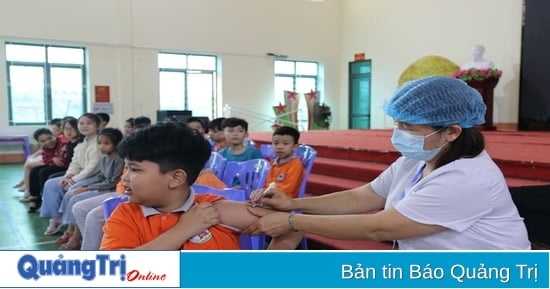

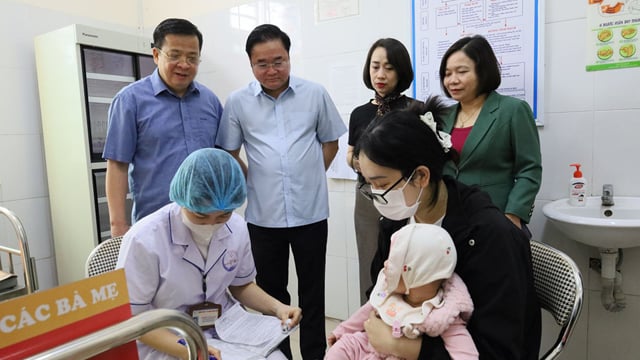

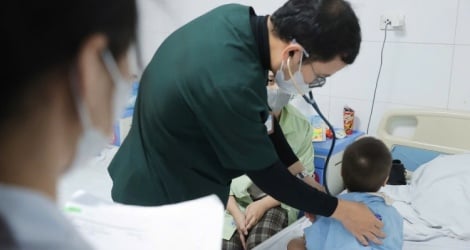

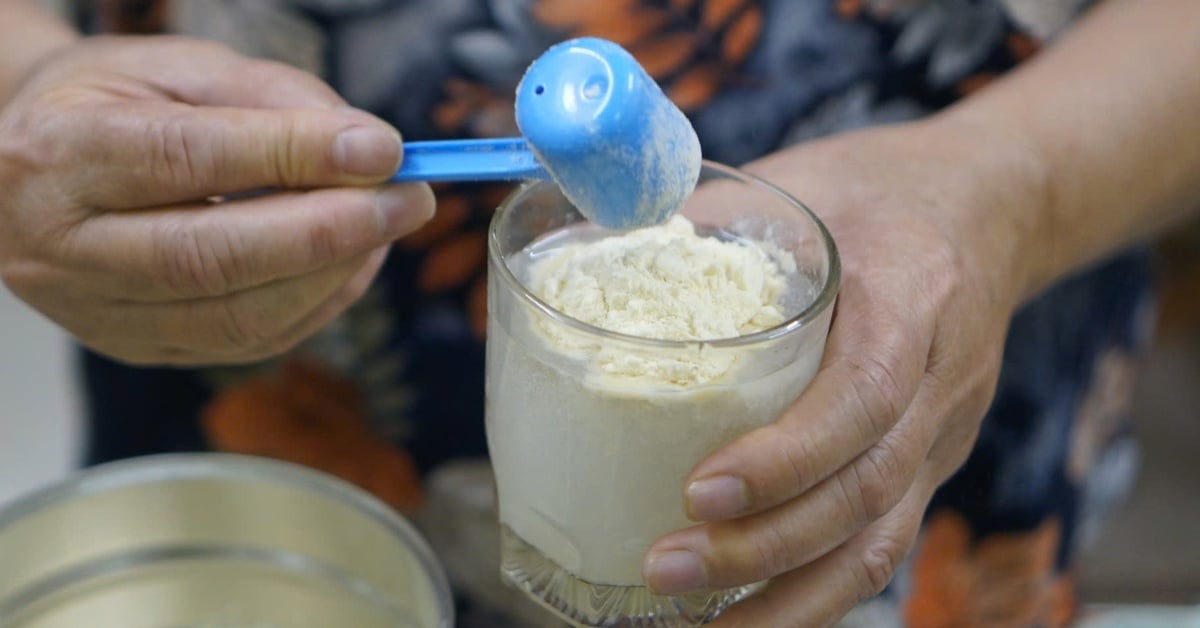
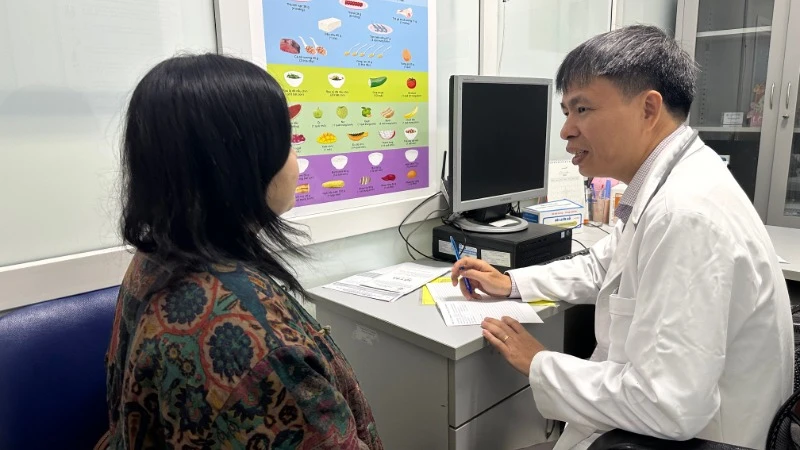
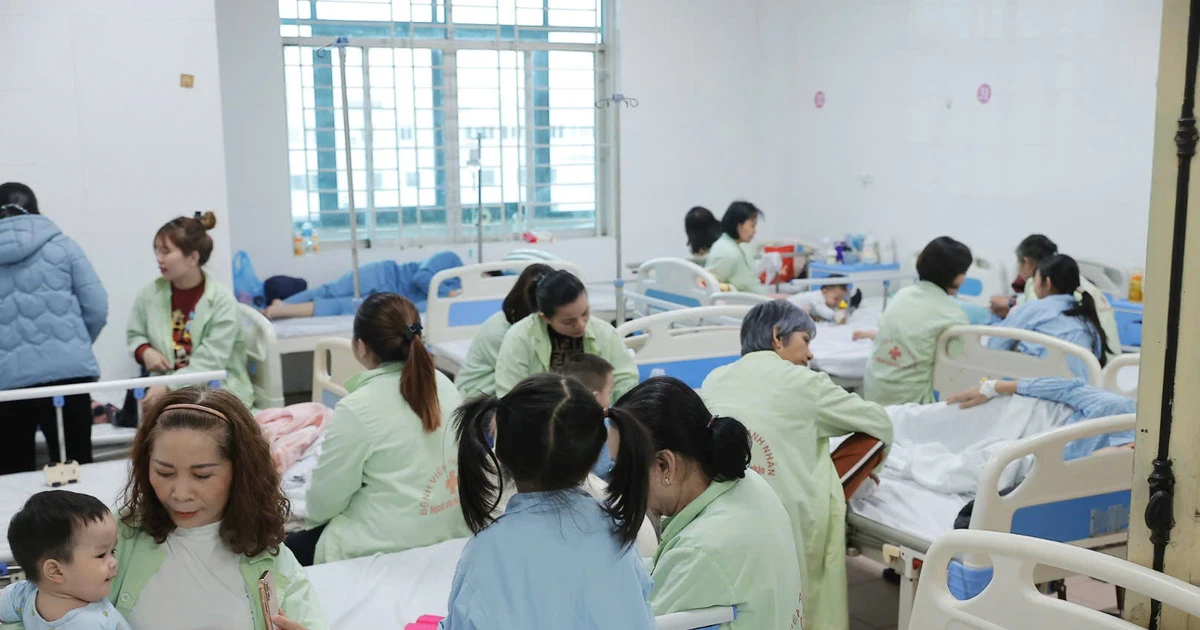


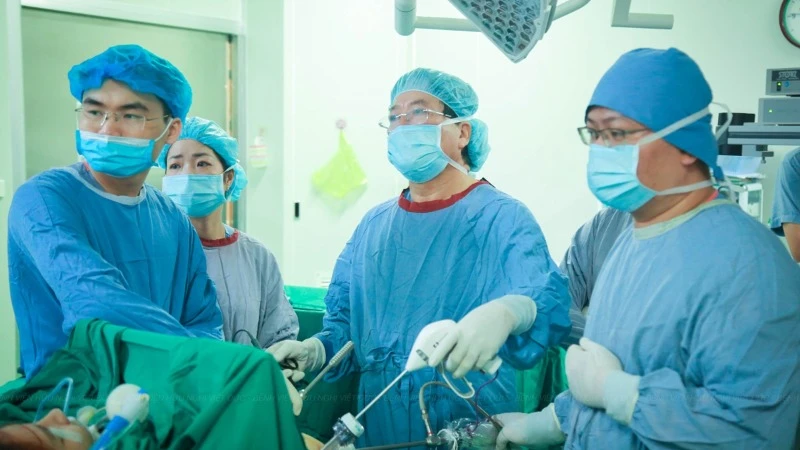










![[Photo] Opening of the 4th Summit of the Partnership for Green Growth and the Global Goals](https://vstatic.vietnam.vn/vietnam/resource/IMAGE/2025/4/16/488550ff07ce4cd9b68a2a9572a6e035)
























![[Video] Viettel officially puts into operation the largest submarine optical cable line in Vietnam](https://vstatic.vietnam.vn/vietnam/resource/IMAGE/2025/4/17/f19008c6010c4a538cc422cb791ca0a1)












































Comment (0)